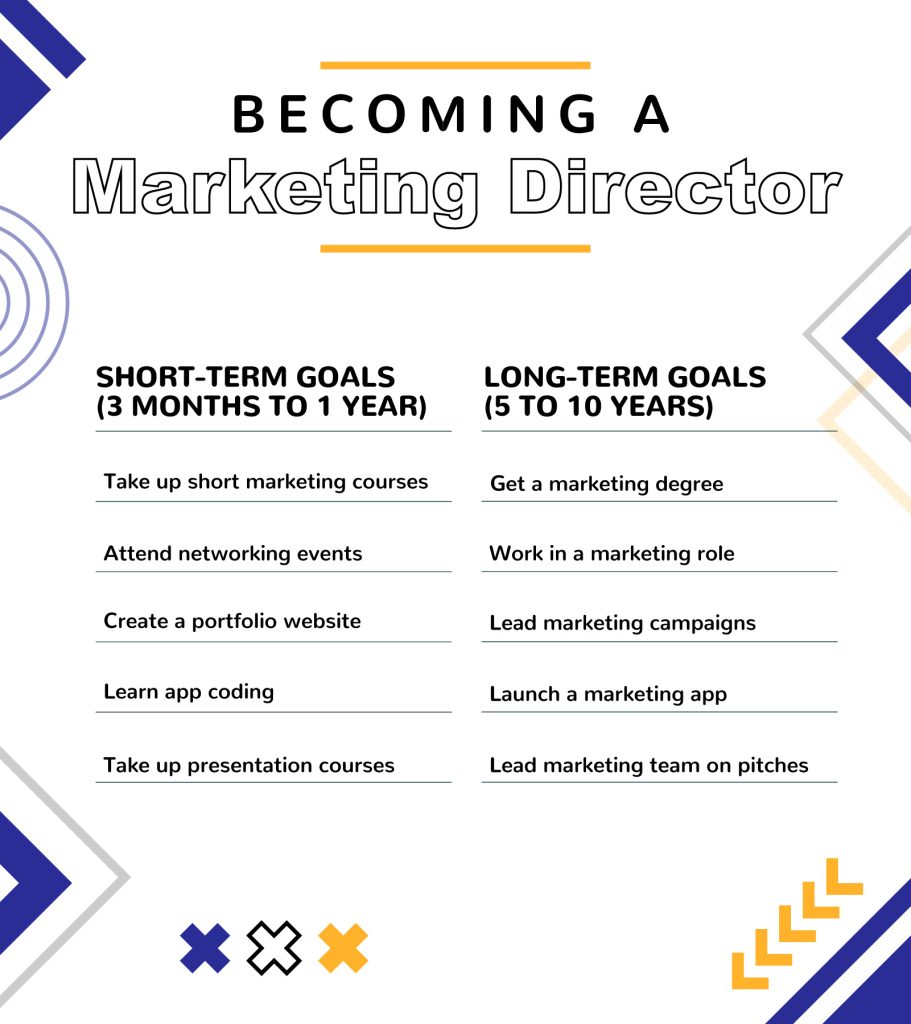Goal setting. A term that would most probably have been heard of at various stages of your life. In fact, you’d have been introduced to it as early as your schooling years, when your teacher made you set goals for what kind of marks you want to achieve for the upcoming exams.
Fast forward to today, the term is thrown around by almost everyone you know: your financial planner, fitness trainer, friends, and even your boss just to name a few. There’s no denying it. In the pursuit of success, goal setting is an important part of the process.
Career success? Set goals, please
So, if you desire career success, setting goals should be an important part of your career planning process. This means defining your goals and coming up with a strategy to achieve them. Of course, this is easier said than done, especially if you’re still hazy about how to get there.
For example, how do you get from being a graphic designer in a small advertising agency to becoming a creative director for a multinational creative firm in the next 10 years?
Enter your career action plan. Sounds complicated? Don’t worry, it’s basically just a list of actionable things that will bring you closer to where you envision yourself to be over a specific duration.
The long and short of setting career goals
The career action plan does not consist of a single action but a list of actions or goals you need to achieve before reaching the career success you envisioned.
Think of these goals as points in a map between you and your target. Now, it’s impossible for you to reach all these points at the same time! So, it’s best to categorise them into short and long-term goals.
The former is those that you can achieve within a short time frame and the latter, over a longer period of time.
How short is short, and how long is long?
The key difference between short and long-term goals is self-explanatory – the duration it takes to achieve them. The former refers to accomplishments that take a shorter time to achieve, typically around three months to three years, whereas the latter is usually completed in three to five years, or longer.
However, the time frames mentioned are to be taken only as a general guideline. What is considered as short or long-term may differ based on circumstances. Most would find a five or ten-year plan to be the norm, while some would plan for an even longer runway spanning 10, 20, or even 50 years!
Examples of short and long-term career goals
Although differing in duration, short- and long-term goals are not disparate from one another. Often, short-term goals are set to support your long-term ones.
For example, if one of your long-term goals is to be a certified digital marketer as a way into a marketing director position, your short-term goal for this could be to take up part-time courses in digital marketing to beef up your knowledge in this domain.
The table below illustrates the relationship between short and long-term goals:
Great, so how do I set goals?
Planning and achieving your long-term goals can be challenging yet rewarding. Staying optimistic, yet pragmatic, will go a long way toward achieving your goals. According to Dr Tracie Lazaroo, a clinical psychologist at Inner Light, a centre that provides clinical psychology and therapy services in Singapore:
“When the increments of change are too challenging for the person, the likelihood of failure increases. Some common reasons are setting unrealistic goals or underestimating the amount of commitment and time required in making habitual or lifestyle changes.”
Here are some guiding tips to help you set long and short-term career goals.
Long-term career goals
1. Envision your career direction
No doubt many things can change over the course of your career journey. However, it is good to have an idea of where you could be in 10 or even 20 years. Do you see yourself in a leadership role? Are you good at working long hours? Are you prepared for what it takes to get there?
If you can visualise your future, then you’d at least be able to have a mental picture of how you would fit into it.
2. Begin with the end in mind
When setting long-term goals, start with the end in mind and work backwards. According to Franklin Covey, a global company specialising in performance improvement for organisations, you can set what you intend to achieve in 10 years’ time and work backwards.
Laying your career path clearly can help you see the big picture of all the short-term achievements you’ll need to check off your list before you can accomplish your long-term career goals.
3. Break big goals into bite-sized pieces
As long-term goals can take years to achieve, breaking up your progress into monthly terms can keep you focused. It is important to check in with yourself monthly and acknowledge your smaller successes.
If there’s anything that did not go according to plan, be adaptable to making necessary changes.
“Not hitting our goals may not feel good, but you can mitigate this by being less critical of yourself and remaining objective on what went wrong, and how specific decisions may have impacted the outcome,” said Dr Tracie.
4. Ensure your goals are SMART goals
SMART goals are objectives you work toward with clear, measurable actions within a specific time frame. They help you focus your energy and increase your chances of achieving your goals.
SMART stands for Specific, Measurable, Achievable, Relevant and Time-based. The synergy of these five elements will help you to create clear, realistic, and trackable goals for career success.
Read More: Career Success: How and Why Setting SMART Goals Will Benefit You
Make a solid but flexible career plan
Making a solid career path plan and goal setting early on is critical for following through and successfully achieving your goals. When creating goals, you must remember that your path may change, so staying flexible and adapting to changes is vital.
By keeping track of progress and making changes as needed, it will help you maintain the motivation you need to achieve your goals.

Upskilling and Reskilling: Know the Difference and Why They’re Important for Career Resilience
Looking to Grow Your Career? Check Out These 7 Tips for Effective Career Planning
How to Select the Right Professional Certification for a New Job or Promotion
Upskilling: How and Why to Make it Relevant for You
Skills Upgrading: Tips to Remain Relevant in the Job Market
Staying Relevant at Work: How and Why Upskilling is Important
Job Security: How and Why Upskilling is Key to Career Resilience
Good Time Management Skills: How to Get More Done in a Workday

4 Must-have Professional Skills to Increase Your Chance of Getting the Job
In Between Jobs: How and Why I Invested the Time to Upskill
Going Digital: How I Upskilled My Way to a New Career
5 Reasons to Invest Time in Online Learning Today
Here’s How Learning About Other Industries Can Help Your Job Search
5 Professional Resolutions to Achieve Your Career Goals on a New Job
Continuous Learning: How and Why it is Key to Your Career Growth

How to Stay on Track and Achieve Your Goals While Working from Home
When is the Best Time to Ask for a Promotion?
Career Success: How and Why Setting SMART Goals Will Benefit You
Networking, Mentors, Upskilling: Your Career Checklist and Guide
5 Ways to Juggle Online Courses While Working a Full-Time Job
















